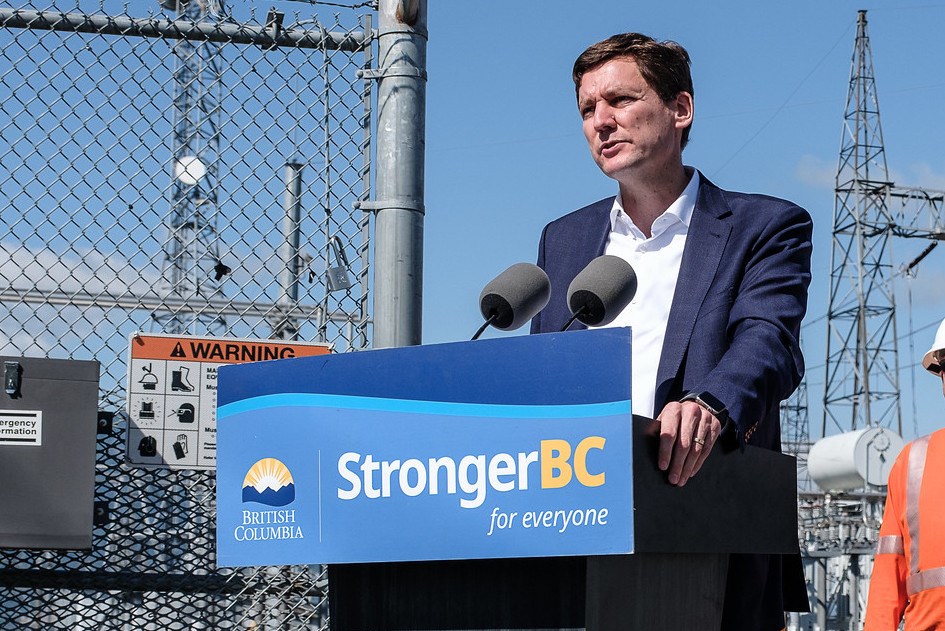In case Premier David Eby didn’t get the message from B.C.’s business community in the recent close-call election, the province's economy has become bloated by government spending, while private sector investment and job growth has been crashing.
The Surrey Board of Trade is ringing alarm bells over “unsustainable” government growth.
It says the government’s own data shows a worrisome trend in which B.C.’s economic growth is driven more by government than the private sector and consumers, which might be sustainable if the government had the revenues from private sector growth to fund all that spending. But the growth in government has been fuelled by debt and deficits.
The Surrey Board of Trade notes that, while B.C.’s GDP grew by 2.4 per cent in 2023, government spending increased by 6.9 per cent, while business investment grew at just 1.5 per cent.
“Economic growth anchored on government expenditure is not sustainable in the long term,” Surrey Board of Trade spokesman Jasroop GosalGosal said in a news release. “A thriving economy needs robust contributions from the private sector, including investments, exports, and innovation.”
A recent BC Stats report notes that B.C.’s GDP growth in 2023 was 2.4 per cent – “the strongest growth among the province.”
But the report also confirms what the business community tried to highlight in the lead-up to the provincial election in October: Much of the growth in “investment” and job creation has been fuelled by taxpayers, through deficit spending, not business and consumer spending.
“In British Columbia, final consumption expenditure rose 2.8 per cent in 2023, driven by large increases in government expenditures (6.9%) and non-profit institutions (+4.8%), outpacing a more modest household spending growth (+1.5%) increase,” the BC Stats report says.
“Investment in fixed capital rose by 1.6 per cent in 2023. The increase was concentrated in government (+22.4%) and non-profit institutions (0.2%), while business investment fell by 1.7%. The decrease in business investment was primarily due to lower housing investment (-7.7%) although investment in machinery and equipment (-3.3%) also slowed.”
“Operating expenditures by all levels of government rose $4.2 billion in 2023 while government gross fixed capital investment rose $2.7 billion, contributing 1.25 and 0.84 percentage points to B.C.’s overall real GDP growth.”
In the lead-up to the election, the Business Council of B.C. (BCBC) noted that most of the job creation in B.C. in recent years has been public sector job growth, with five public sector jobs created for every one private sector job.
“Government spending plays a vital stabilizing role, but the private sector is the engine of sustainable economic growth,” Gosal said. “A balanced approach is necessary to ensure long-term prosperity for British Columbians.”
The Surrey Board of Trade is calling on the B.C. government to provide incentives to boost private-sector investment, concentrate on “strategic infrastructure investments that support business growth,” and policies to strengthen export activity.



